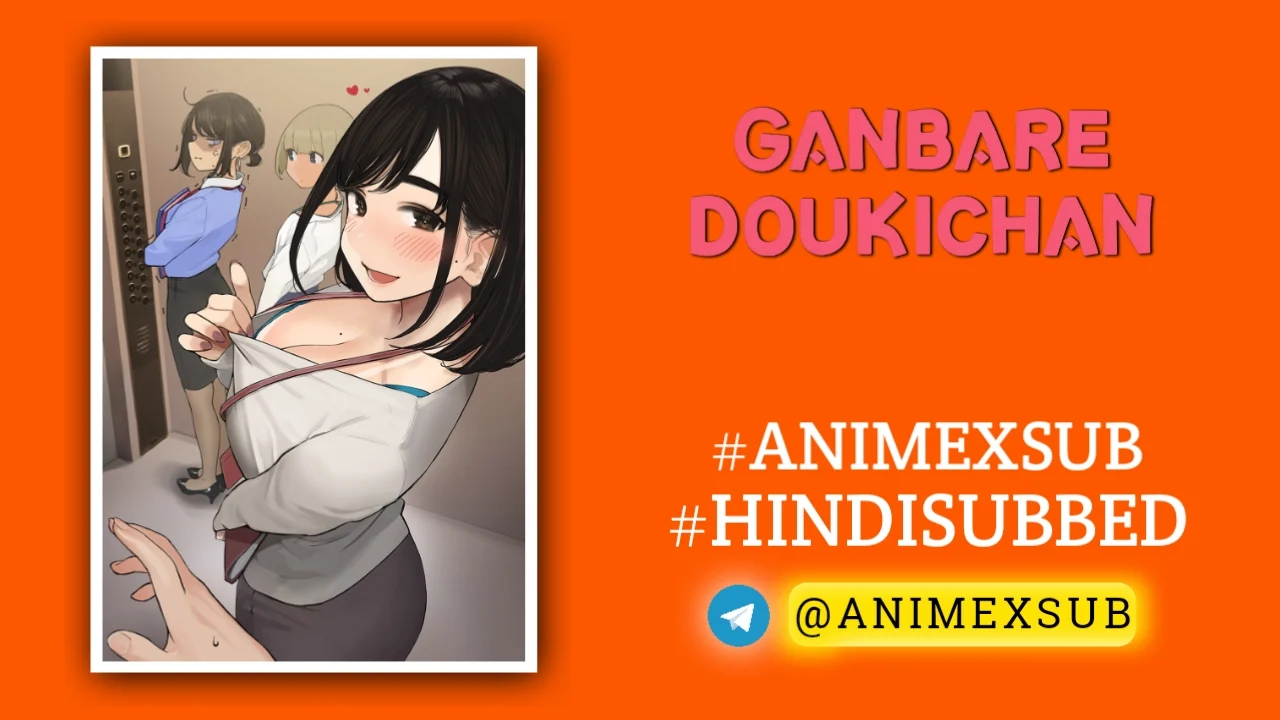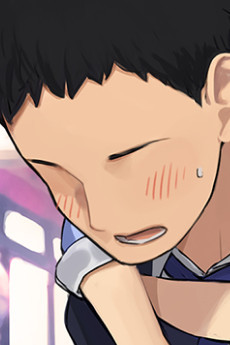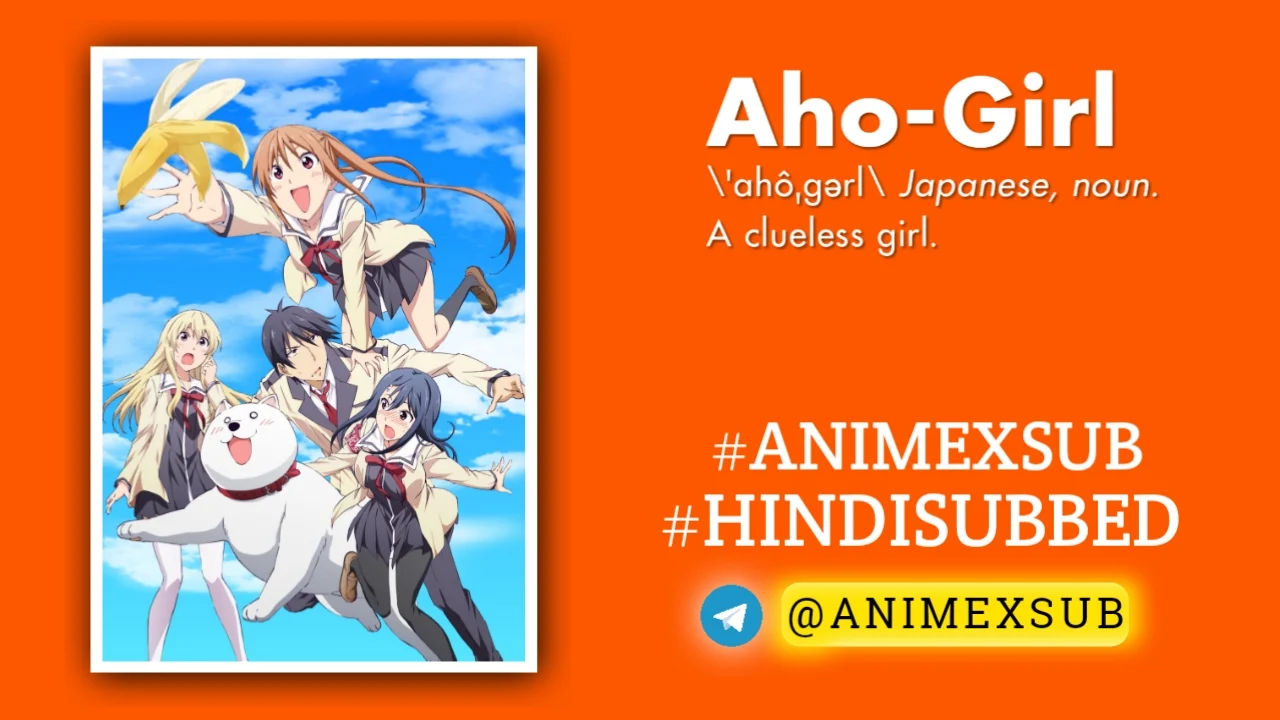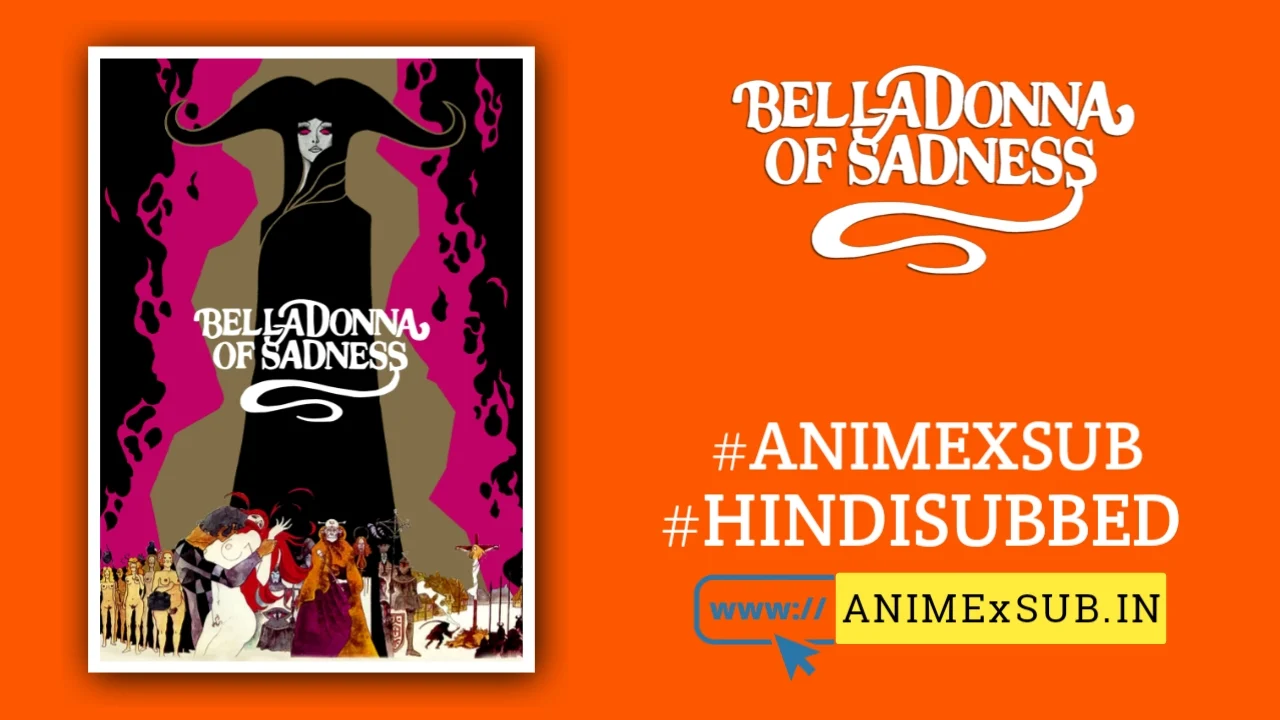
Ganbare Douki-chan Season 1 Hindi Subbed [12/12] {18+}

Ganbare, Douki-chan
GANBARE DOUKICHANSynopsis
Announced on Yom's Twitter, a web anime adaptation of Ganbare, Douki-chan. The story follows an office lady, Douki-chan, who is working with Douki-kun in an office. Unbeknownst to Douki-kun, Douki-chan secretly has feelings for him. As Douki-chan struggles to confess her feelings, her rivals, both the kohai and senpai, continue to vie for his affection.
Characters
Ganbare Douki-chan Season 1: A Charming Office Rom-Com Packed with Heart and Humor
Ganbare Douki-chan (translated as “Do Your Best, Douki-chan”) is a delightful 2021 romantic comedy anime that brings a fresh twist to the workplace romance genre. Adapted from a collection of illustrations and doujinshi manga by artist Yomu, serialized on Twitter from 2019 to 2023, this short-form original net animation (ONA) by Atelier Pontdarc captured hearts with its bite-sized episodes, endearing characters, and playful take on office dynamics. Season 1, consisting of 12 episodes plus a bonus Blu-ray episode, premiered on September 20, 2021, and ran until December 6, 2021, on platforms like Abema in Japan and Crunchyroll internationally. With its blend of humor, romance, and subtle fanservice, Ganbare Douki-chan offers a lighthearted escape for fans of the genre.
Plot and Setting
The story centers on Douki-chan, a diligent office worker at a Tokyo-based company, who harbors a secret crush on her coworker, Douki-kun, who joined the company at the same time as her (hence the term “douki,” meaning colleague of the same seniority). Despite her earnest attempts to win his affection, Douki-chan’s plans are repeatedly foiled by her own awkwardness and the interference of two romantic rivals: Kouhai-chan, a coy and mischievous junior colleague, and Senpai-san (Maiko Okuzumi), a mature and confident employee from a partner company. The series follows Douki-chan’s comedic misadventures as she navigates her feelings, workplace scenarios, and the antics of her competitors, all while Douki-kun remains blissfully unaware of the romantic tug-of-war surrounding him.
Each episode, typically around five minutes long, focuses on a specific scenario—ranging from a shared hotel room on a business trip to a Valentine’s Day chocolate-giving attempt—highlighting Douki-chan’s earnest but clumsy efforts to get closer to Douki-kun. The show cleverly uses the office setting as a backdrop for romantic tension, with moments like being stuck in an elevator or attending a company pool party adding both humor and heart to the narrative. A unique aspect of the series is its perspective: Douki-kun’s face is rarely shown, often depicted from a first-person viewpoint, making the audience feel like they are Douki-kun, amplifying the charm of the women vying for his attention.
Characters
The strength of Ganbare Douki-chan lies in its small but vibrant cast, each bringing distinct personalities to the table:
- Douki-chan (voiced by Nene Hieda): The earnest protagonist, Douki-chan is a hardworking and slightly clumsy office worker who’s head over heels for Douki-kun. Her determination to confess her feelings is constantly undermined by her lack of confidence and external interruptions. Her relatable struggles and expressive reactions make her an endearing lead.
- Douki-kun (voiced by Jun’ya Enoki): The oblivious object of affection, Douki-kun is a kind and gentlemanly coworker who secretly harbors feelings for Douki-chan but is too shy to act on them. His faceless depiction adds a layer of mystery and universality to his character.
- Kouhai-chan (voiced by Sumire Uesaka): The playful and flirtatious junior colleague, Kouhai-chan is a master of subtle seduction and enjoys teasing Douki-chan by monopolizing Douki-kun’s attention. Her cosplay antics and fox-like cunning make her a formidable rival.
- Senpai-san (Maiko Okuzumi) (voiced by Asami Seto): A sophisticated and confident woman from a partner company, Senpai-san exudes a mature aura and has a past connection with Douki-kun from their university days. Her bold moves often leave Douki-chan flustered.
The dynamic between these characters creates a comedic love quadrangle, with each woman’s distinct approach to winning Douki-kun’s heart adding variety to the short episodes. Interestingly, the series hints that Kouhai-chan and Senpai-san may secretly root for Douki-chan, adding a layer of camaraderie beneath their rivalry.
Production and Style
Produced by Atelier Pontdarc, Ganbare Douki-chan Season 1 was directed and storyboarded by Kazuomi Koga, with scripts by Yoshiko Nakamura and character designs by Yuki Morikawa. The animation is polished for a short-form series, with a soft, colorful art style that reflects Yomu’s original illustrations. The show’s visual appeal is enhanced by its attention to detail, particularly in the characters’ expressive designs and the subtle fanservice (like Yomu’s signature love for tights), which is playful without being overbearing.
The ending theme, “Lady Go,” performed by Nene Hieda, perfectly captures the upbeat and flirty tone of the series. The voice acting is a standout, with Nene Hieda’s portrayal of Douki-chan’s nervous energy and Sumire Uesaka’s mischievous Kouhai-chan stealing the show. The series also benefits from its concise format, making each episode a quick, digestible burst of comedy and romance.
Themes and Appeal
At its core, Ganbare Douki-chan is a lighthearted exploration of unrequited love, workplace dynamics, and the courage it takes to express one’s feelings. The series flips the traditional harem anime formula by focusing on the women’s perspectives, showcasing their emotions and strategies as they compete for Douki-kun’s affection. This female-driven narrative, combined with its short runtime, makes it accessible and engaging for a wide audience.
The show’s humor stems from Douki-chan’s relatable awkwardness and the exaggerated antics of her rivals, while its romantic tension is fueled by the mutual but unspoken feelings between Douki-chan and Douki-kun. The series also subtly critiques workplace social dynamics, with the bonus episode, “The Coworker is Suffering from Social Inequality,” touching on themes of workplace hierarchy and pressure, albeit in a comedic tone.
Compared to similar series like Tawawa on Monday (which aired alongside it in 2021 and shares a similar art style and fanservice sensibility), Ganbare Douki-chan feels more polished and character-driven, with a stronger emphasis on romantic comedy over pure fanservice. Its micro-episode format makes it perfect for viewers seeking a quick, feel-good anime fix.
Reception and Legacy
Ganbare Douki-chan Season 1 was well-received for its charming simplicity and faithful adaptation of Yomu’s web-manga. Fans praised its concise storytelling, expressive animation, and the chemistry between its characters. On platforms like MyAnimeList, it earned a decent average rating of around 6.0–6.2, reflecting its niche but dedicated fanbase. The series’ popularity led to a Blu-ray release on December 24, 2021, which included an exclusive 13th episode, further expanding the story.
The anime’s success can also be attributed to its roots as a Twitter-serialized manga, which built a loyal following through Yomu’s weekly updates. Its crossover promotion with Tawawa on Monday further boosted its visibility, cementing its place as a standout in the 2021 fall anime season.
Conclusion
Ganbare Douki-chan Season 1 is a gem of a rom-com that delivers big laughs and heart in a compact package. Its relatable protagonist, quirky rivals, and charming workplace scenarios make it a perfect watch for fans of lighthearted anime with a touch of romance. While its short episodes leave you wanting more, they also ensure the story never overstays its welcome. Whether you’re rooting for Douki-chan to finally confess her feelings or just enjoying the comedic chaos, this series is a delightful addition to the genre. For those eager to dive in, the series is available on Crunchyroll and other streaming platforms, with the Blu-ray offering an extra dose of Douki-chan’s misadventures.
So, ganbare, Douki-chan—keep chasing that office romance!
Support Our Anime Community!
Love watching the latest anime? Help us keep uploading new episodes by join telegram channel ❤️
Join Now!








